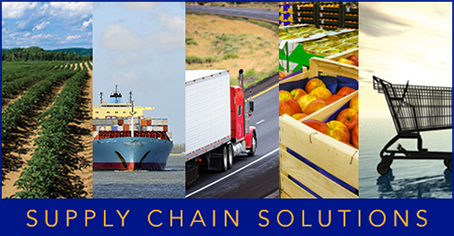Read Part II
Supply Chain Consulting – Part 2
Asking key questions to achieve results
Every January, the performance scoreboard is reset and hope springs eternal for a stellar year. Fresh produce companies vow to grow more, ship more, and sell more product at better margins. Growing strategies are ready for implementation. Supply chain goals are locked in. Technology investment plans have been vetted and approved.
Despite these positive preparations, 2018 may be a difficult year to achieve key goals in the fresh produce industry. Shrinking unemployment suggests future farm labor availability and cost challenges. An acute shortage of qualified truck drivers threatens the steady, low cost movement of product from field to shelf. And, Amazon is quickly becoming a bigger factor in produce retailing with its ownership of Whole Foods.
Keeping your supply chain goals on track in this challenging environment may require an infusion of external expertise. Short of hiring a full-time strategist, the best option is to hire a supply chain consultant. A qualified consultant can effectively analyze your operations, recommend improvements, and drive implementation plans.
Finding the right consultant and targeting the right issues are the keys to developing optimal solutions to your supply chain challenges. They are also a major undertaking—which is why two Supply Chain Solutions articles will be devoted to this topic. This article focuses on important questions to facilitate consulting project planning, the second installment in April will address questions about focal areas for project execution.
Step 1 – Why Hire a Consultant?
Supply chain professionals take pride in developing effective and efficient fulfillment processes. Their expertise is tweaking those processes and making timely adjustments to prevailing conditions so product flows remain steady. Under fairly predictable conditions and stable demand, such efforts generate continuous performance improvement.
Unfortunately, produce supply chains are not as simple and stable as they once were. Volatile demand and greater customer requirements may impair the current supply chain and permanently impact performance. Business change—in the form of a new CEO, a merger, or a new line of business—may render an existing supply chain obsolete. In these situations, a supply chain transformation is needed to remain competitive in this hyper-fast, consumer-driven environment.
Undertaking a transformation with existing resources is difficult. The current supply chain team is neck-deep in maintaining product flows and lacks the time to properly overhaul processes. They also may have limited experience with managing major projects, updating technology, or driving change. External support is essential.
One source of external support is consultants. As project specialists, they have the capacity and focus to guide a variety of supply chain initiatives. Veteran consultants have the expertise and broader marketplace perspective to support supply chain transformation. They are often called upon to fix major problems, design new supply chains, and integrate operations.



